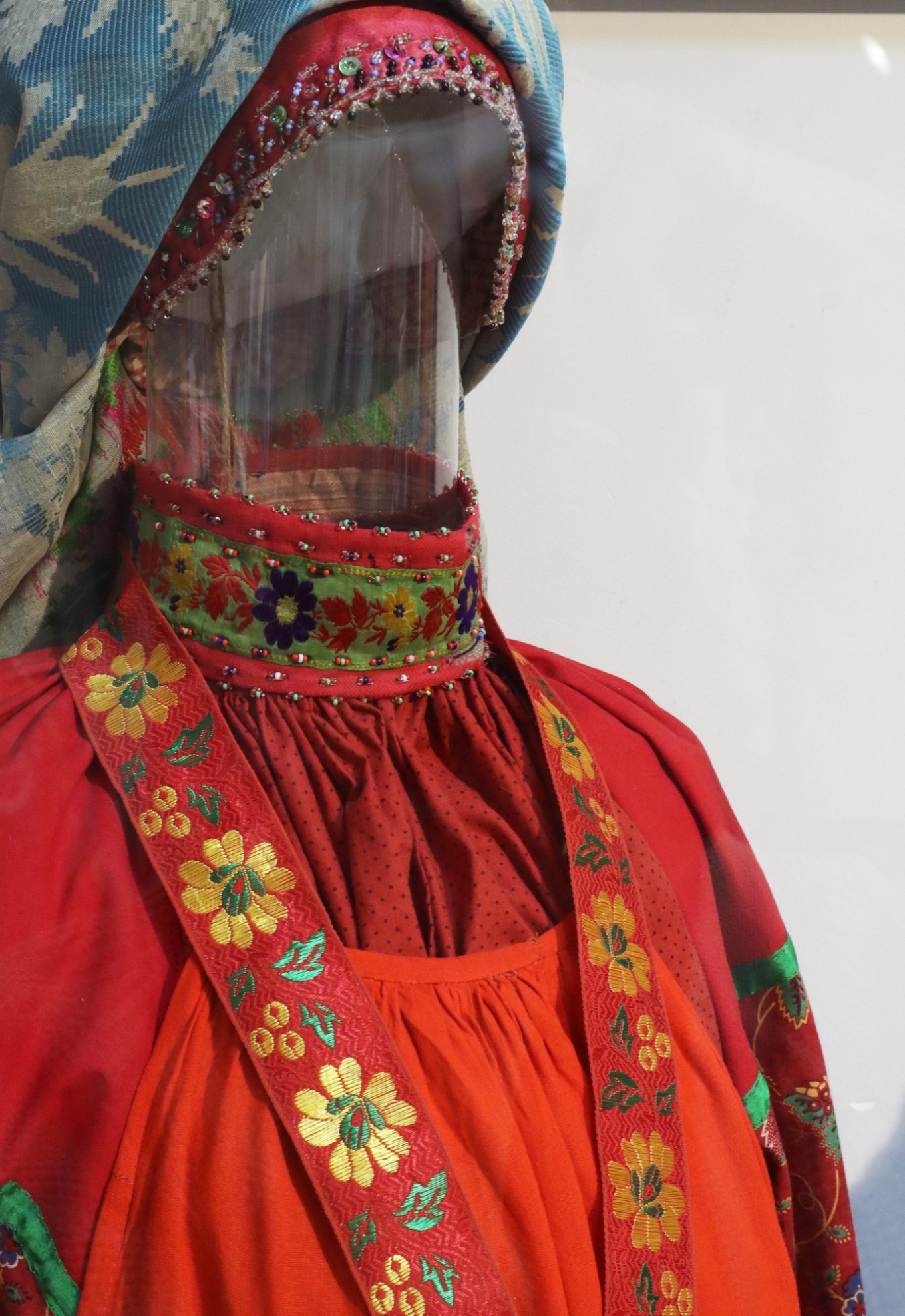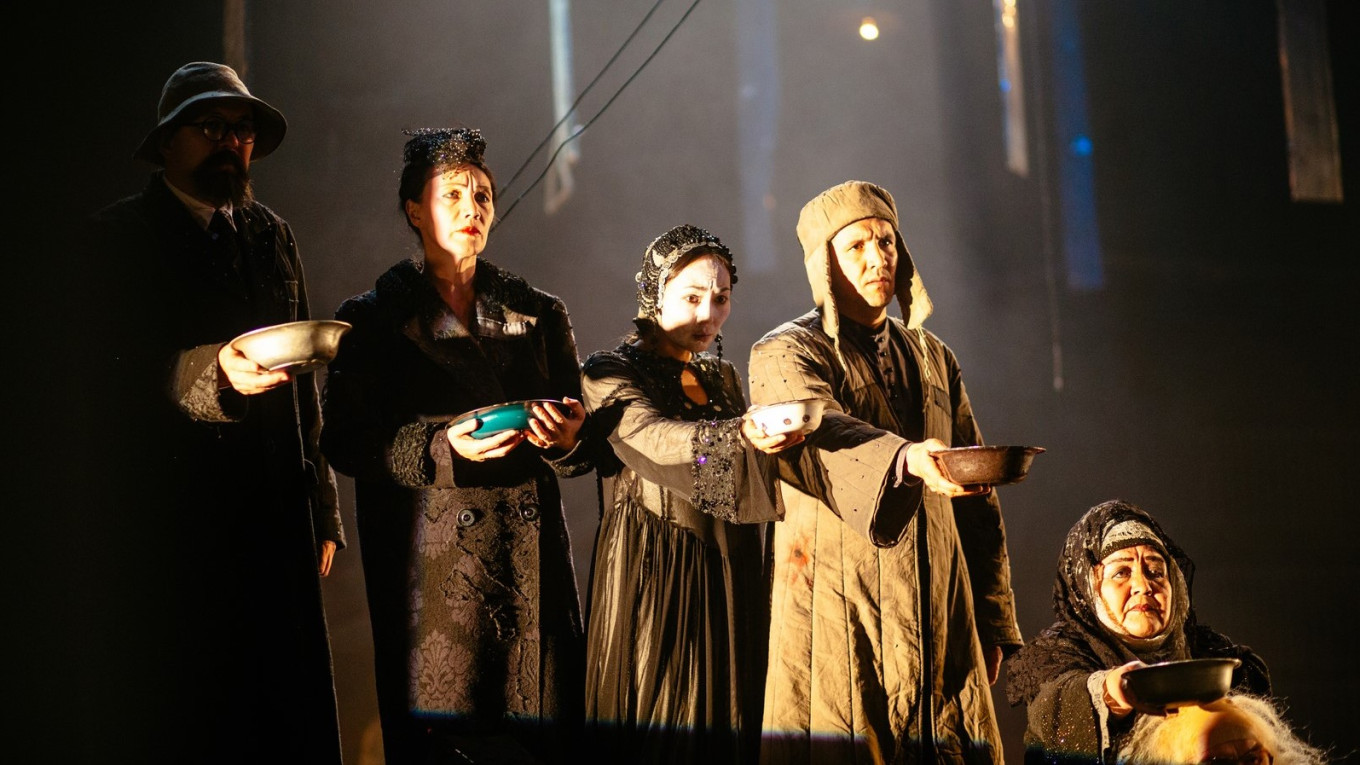Since Feb. 24, 2022, a new curtain has descended on the Russian arts. Major Western auction houses and galleries are no longer working with Russian artists, Western companies have left Russia, and many Western suppliers are no longer exporting to Russia. But the impact of sanctions and other actions have impacted big cities and small towns in Russia differently.
The price of a pencil
The impact on artists and museums is mixed. In June 2022, the General Director of the Moscow Kremlin Museums, Elena Gagarina, announced that the Moscow Kremlin Museums would not hold exhibitions in Europe until sanctions were lifted from the Russian Federation. The Hermitage also announced a one-year moratorium on exhibitions in the U.S. and Europe.
In smaller towns, museums usually don’t hold international exhibitions, but rather request loans from other regional museums and holdings. For example, at the end of December 2022, the Lipetsk Historical and Cultural Museum hosted the exhibition “Three estates. South Russian costume of the late 19th-early 20th century,” which included works from neighboring regions.
But sanctions have made life more difficult for artists who work with European museums or auctions. The paintings by Yevgeny Monakhov are in museums and private collections around the world. In 2022 his work “Medea” was going to be auctioned at Sotheby’s, but in the middle of the auction, the painting was withdrawn. Monakhov told The Moscow Times that selling or showing his work in “western exhibitions, international competitions, and Sotheby’s have been frozen for an indefinite time.” His situation is less precarious than others. “Fortunately, I have the financial security to work in my studio,” he said.
Local artists who work with high-quality foreign materials also have some problems. An illustrator from Lipetsk, who prefers to remain anonymous, said that he likes to use German pencils, mainly Derwent, or Faber-Castell. “Unfortunately, the price has gone up and it’s hard to find them.”
Empty seats and changing repertories
Many Moscow theaters changed their repertory due to the departure of artists. Somewhere changes in the repertoire were connected with banning some directors or actors.
In November 2022, the play “Zuleikha Opens her Eyes” based on the novel by Guzel Yakhina, who has opposed the war, was removed from the repertory in Ufa. Earlier, the director of the play, Airat Abushakhmanov, said the performance was one of the most successful since 2017. Nowadays it has disappeared even from the theater's website. Yakhina reported that she learned about the situation from journalists.
The regions have another problem. “In 2021, all tickets were usually sold out a month in advance, now, as a rule, it’s possible to buy tickets even on the day of the performance. Sometimes they remain unsold,” two sources in Lipetsk theaters reported anonymously. “We think people have begun to spend less money on entertainment. In Lipetsk, they are more likely to stand in lines for salt than at a theater box office.”

Money for culture
A similar situation is in the music industry. Changes in the repertory due to the cancellation of concerts by foreign musicians mainly affected concert halls in large cities. In towns, they performed rarely before Feb. 24, 2022. So, in the Lipetsk House of Music among the invited musicians in the last eleven months, there are only musicians from Moscow and St. Petersburg.
“The problem is with people’s financial situation at present,” a musician from Kazan told The Moscow Times. “Our salary depends on the number of tickets sold. When the pandemic was over, we could exhale and relax a bit again. But then the war began. Most people prefer not to spend their money on entertainment.”
Musicians have not yet noticed a shortage of instruments. “This is not for long,” says a musician from Vladimir, who wished to remain anonymous. Russian musicians had a kind of life hack: they bought their instruments from foreign stores because they were cheaper and of better quality. Now these shops don’t deliver to Russia. I was going to buy new instruments but changed my mind.”
The musician also said that prices had risen. “I use Pirastro Chromcor strings. I used to buy them for about 3,000-4,000 rubles ($40-53), but nowadays they cost 11,000-15,000 rubles ($146-200).”
Keeping movie theaters in business
The greatest immediate effect of the arts sanctions is in movie theaters. In the early spring of 2022, the Walt Disney Company, Warner Bros., Sony Pictures, and Paramount announced that they were leaving the Russian market.
This has had a great effect on Russian television. Over the New Year’s instead of the classic film “Home Alone,” the STS TV channel showed cartoons, the comedy show “Urals Pelmeni,” the children's comedy TV show “Yeralash,” and some second-rate films. Over the past almost 12 months, viewers have already gotten used to seeing the same films, mostly Russian, on different TV channels. People have begun to watch less TV for this reason.
In movie theaters, the situation is different. Some cinemas comply with Western sanctions. For example, Lipetsk cinemas show only Russian films, cartoons, and films by companies that have not banned their works in Russia. But the cinemas are almost empty. “I don’t want to watch “Yolki” [a series of Russian holiday movies] — I want to watch “Avatar-2,” an indignant movie-goer named Inna told The Moscow Times. “That’s why I stopped going to cinemas.”
However, some movie theaters simply ignore the sanctions and show Western films anyway. “Avatar – 2” was shown in Tula, Novosibirsk, and the film “Black Panther – 2” was shown in the cities of the Khanty-Mansi Autonomous Okrug.
It’s against the law, but cinemas that don’t comply enjoy sold-out shows.
A Message from The Moscow Times:
Dear readers,
We are facing unprecedented challenges. Russia's Prosecutor General's Office has designated The Moscow Times as an "undesirable" organization, criminalizing our work and putting our staff at risk of prosecution. This follows our earlier unjust labeling as a "foreign agent."
These actions are direct attempts to silence independent journalism in Russia. The authorities claim our work "discredits the decisions of the Russian leadership." We see things differently: we strive to provide accurate, unbiased reporting on Russia.
We, the journalists of The Moscow Times, refuse to be silenced. But to continue our work, we need your help.
Your support, no matter how small, makes a world of difference. If you can, please support us monthly starting from just $2. It's quick to set up, and every contribution makes a significant impact.
By supporting The Moscow Times, you're defending open, independent journalism in the face of repression. Thank you for standing with us.
Remind me later.






